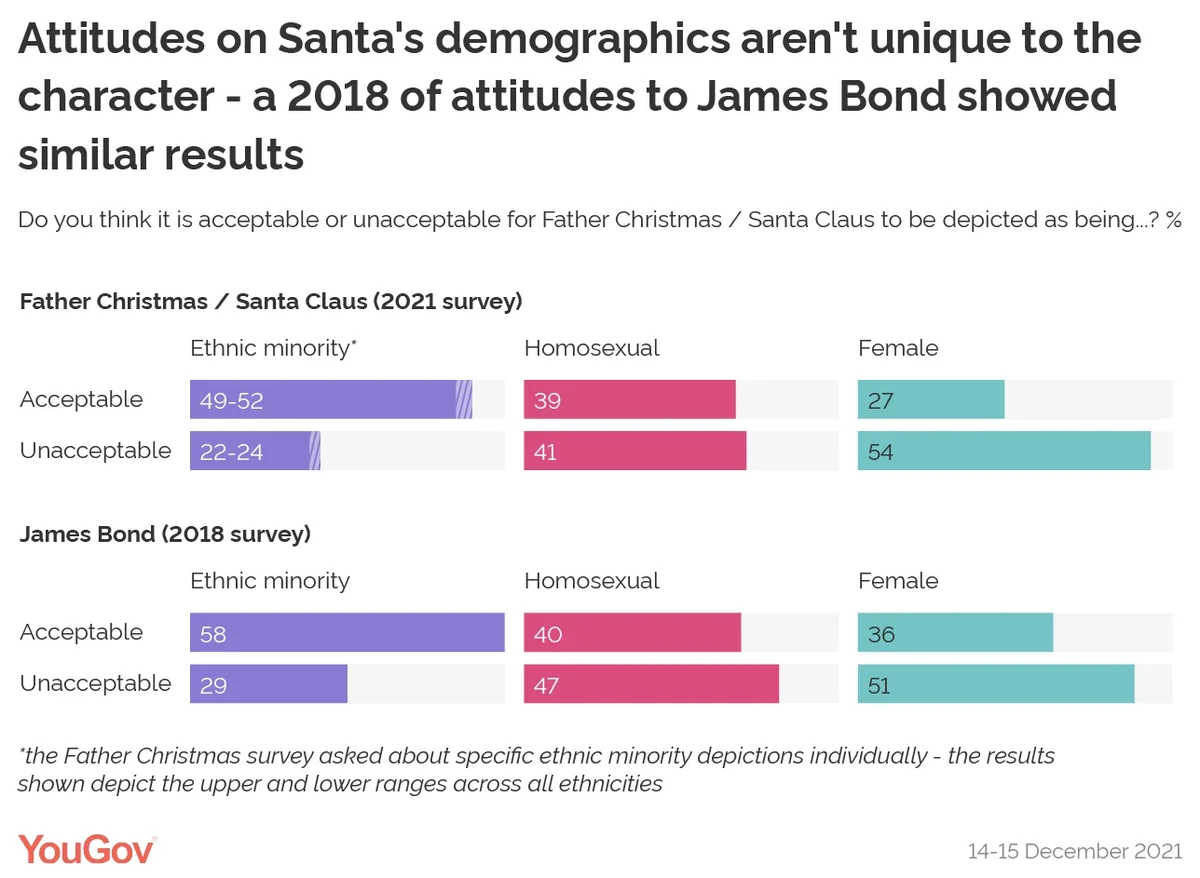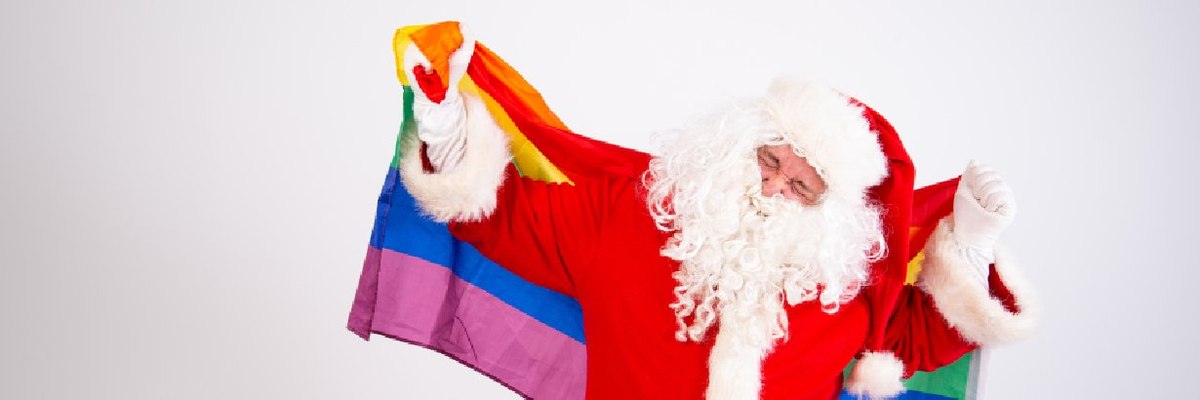YouGov examines public attitudes to Father Christmas’s race, gender and sexuality
In late November, a Norwegian advert depicting Father Christmas as being homosexual caused controversy in some circles, with the video being depicted on TalkRadio as “woke gay Santa advert is sexualising Christmas”.
The advert was for released by the Norwegian postal service to commemorate 50 years since homosexuality was decriminalised in Norway.
Scandinavian countries like Norway are known for having socially liberal attitudes, so how might the advert have gone down if aired on these shores? ‘Divisive’ is perhaps the best description, as a new YouGov poll shows that Britons are split 39%/41% on whether or not it would be acceptable to depict Father Christmas as being homosexual.
Among lesbian, bisexual and gay Britons, a homosexual Santa is a welcome depiction: 76% say they find it acceptable, with only 17% opposed.
Age is the key factor among the wider public, with the youngest Britons – those aged 18-24 – supporting a gay Santa by 60% to 20%. Those aged 25-49 are also more in favour than not, by 46% to 33%, but this is flipped among 50-64 year olds who find such a depiction unacceptable by 47% to 31%. Most Britons aged 65 and over cannot tolerate a homosexual Father Christmas, by 58% to 24%.
Gender also plays a role, with men saying gay Santa is unacceptable by 46% to 36%, while women accept such depictions by 42% to 36%.
Can Santa be female?
The public are firmly against a female Father Christmas, with Britons saying such depictions would be unacceptable by two to one (54% to 27%). Women are just as likely as men (56% and 53%) to say no to a Saint Nicola.
There is, however, plurality support among 18-24 year olds for allowing women to step into Santa’s shoes, with 45% saying it would be acceptable to 31% who say it would be unacceptable.
Can Santa be Black, Middle Eastern or Asian?
A YouGov study in the USA last year examined attitudes towards Santa (and Jesus) being depicted as various races.
Here in the UK, people are less accepting of a non-White Father Christmas. While eight in ten (80%) say it is acceptable to depict Santa as being White (virtually identical to the number of Americans who said so), only about half of Britons (49-53%) say it’s ok for him to be shown as being from any of the other ethnicities we asked about (Black, Middle-Eastern, East Asian or South Asian). By contrast, in the USA two thirds (67%) were accepting of a Black Santa, and 58-60% were comfortable with an Asian or Middle-Eastern Kris Kringle.
Again, age plays a role. Younger Britons are more accepting of non-White Saint Nicks, but are also slightly less likely to see a White Santa as ok at 71% compared to 79-82% of other age groups (although this is because they are more likely to say don’t know than other age groups, rather than specifically being opposed to the traditional depiction of Father Christmas).
Attitudes among Britons from ethnic minority backgrounds are largely the same to the wider population. The biggest difference is over depicting Father Christmas as White, which 68% say is acceptable, 12pts lower than the public as a whole. Nevertheless, only 11% consider a White Santa Claus to be unacceptable.
Results among ethnic minority Britons who are Christian are effectively the same as those of ethnic minority Britons in general. The only difference is that a Black Father Christmas is slightly more acceptable among the former group (55%) than the latter (49%).
Attitudes towards changing Santa’s characteristics are not unique
Back in 2018, YouGov asked about the demographics of another famous fictional straight White man: James Bond. Attitudes towards the race, gender and sexuality of Father Christmas largely echo those from the James Bond survey, with generally favourable attitudes to changing 007’s race, relative division on his sexual preferences (Britons tended to oppose a gay Bond by 47% to 40%) and firm opposition to a female James.
This suggests that opinion towards Father Christmas is not unique to the character himself, and may instead reflect a broader set of attitudes on making changes to firmly established pop culture figures.











